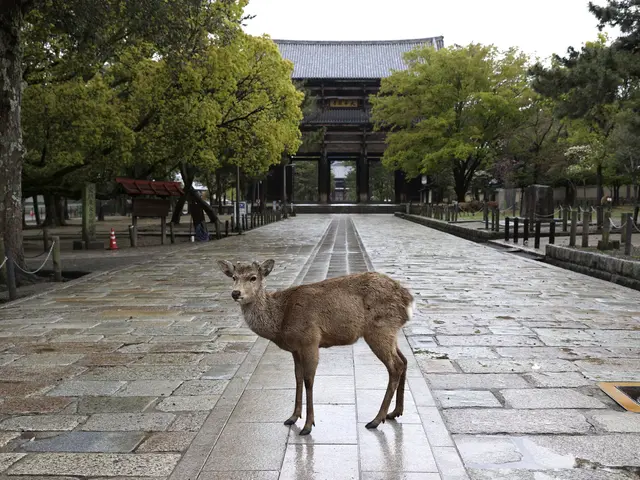Coronavirus cases in Japan increased by 449 to 11,965, with 132 new daily infections recorded in Tokyo, according to the latest figures from the health ministry and local authorities Wednesday evening.
With the figures showing the virus in urban areas in Japan is continuing to spread consistently, Japanese Prime Minister Shinzo Abe on Wednesday again called on the country for more cooperation in the fight against the deadly virus.
"To bring an end to this state of emergency as soon as possible, now is the most critical time for us," Abe said.
"I'd like to ask the people of Japan to take a fresh look at their behavior and cooperate in attaining the 80 percent cut in person-to-person contact," Abe said at a meeting of a government task force on the coronavirus response.
The nationwide death toll from the virus has now increased to a total of 295, including those from a cruise ship that was quarantined in Yokohama near Tokyo, the latest figures showed.
In Tokyo, the epicenter of Japan's outbreak, the number of COVID-19 cases has increased to 3,439 confirmed cases, accounting for well over one-third of all COVID-19 cases across the nation, followed by hard-hit Osaka Prefecture where cases have risen to 1,380 infections.
Kanagawa Prefecture, meanwhile, has recorded 836 infections, Chiba Prefecture 746 cases, Saitama Prefecture 726 infections, Fukuoka Prefecture 563 case, while Hyogo Prefecture has recorded 560 cases of COVID-19, according to the latest figures Wednesday evening.
The health ministry here also said there are currently a total of 245 patients considered severely ill and are on ventilators to receive respiratory assistance or have been admitted to intensive care units for medical treatment.
Abe also said that during the upcoming Golden Week holidays from late April to early May, people should refrain from going to their hometowns to see their parents and family members, or otherwise take vacations.
He said that catching up with family and friends over the lengthy holiday period could be done online.
Abe declared a state of emergency for Tokyo and six other prefectures two weeks ago, but it was expanded nationwide later, with many prefectures also asking their residents to stay home and refrain from going outside unnecessarily, while requesting some businesses to suspend their operations.
The prime minister also pledged to provide all residents with a 100,000 yen (930 U.S. dollars) cash handout.
The Japanese leader has been urging citizens to reduce person-to-person contact by up to 80 percent and reduce commuting by 70 percent by working from home.
He said that on weekdays, people's movements have reduced by 60 percent and more than 70 percent on weekends in urban areas over the past two weeks compared to before the outbreak of the virus.
Abe said, however, that the virus had spread from urban to rural areas during the holidays in March and that it was imperative this not reoccur during Golden Week.
 简体中文
简体中文

